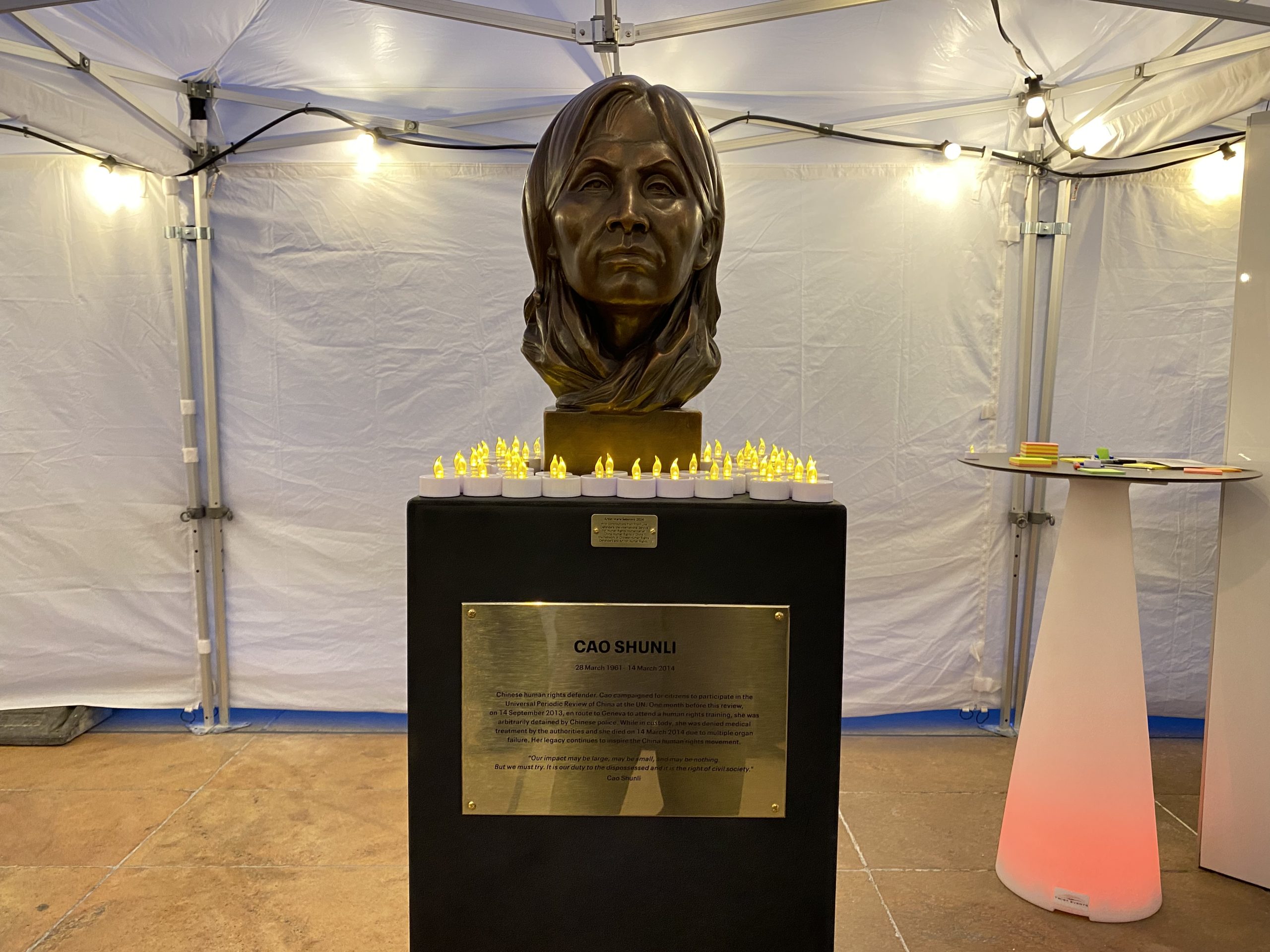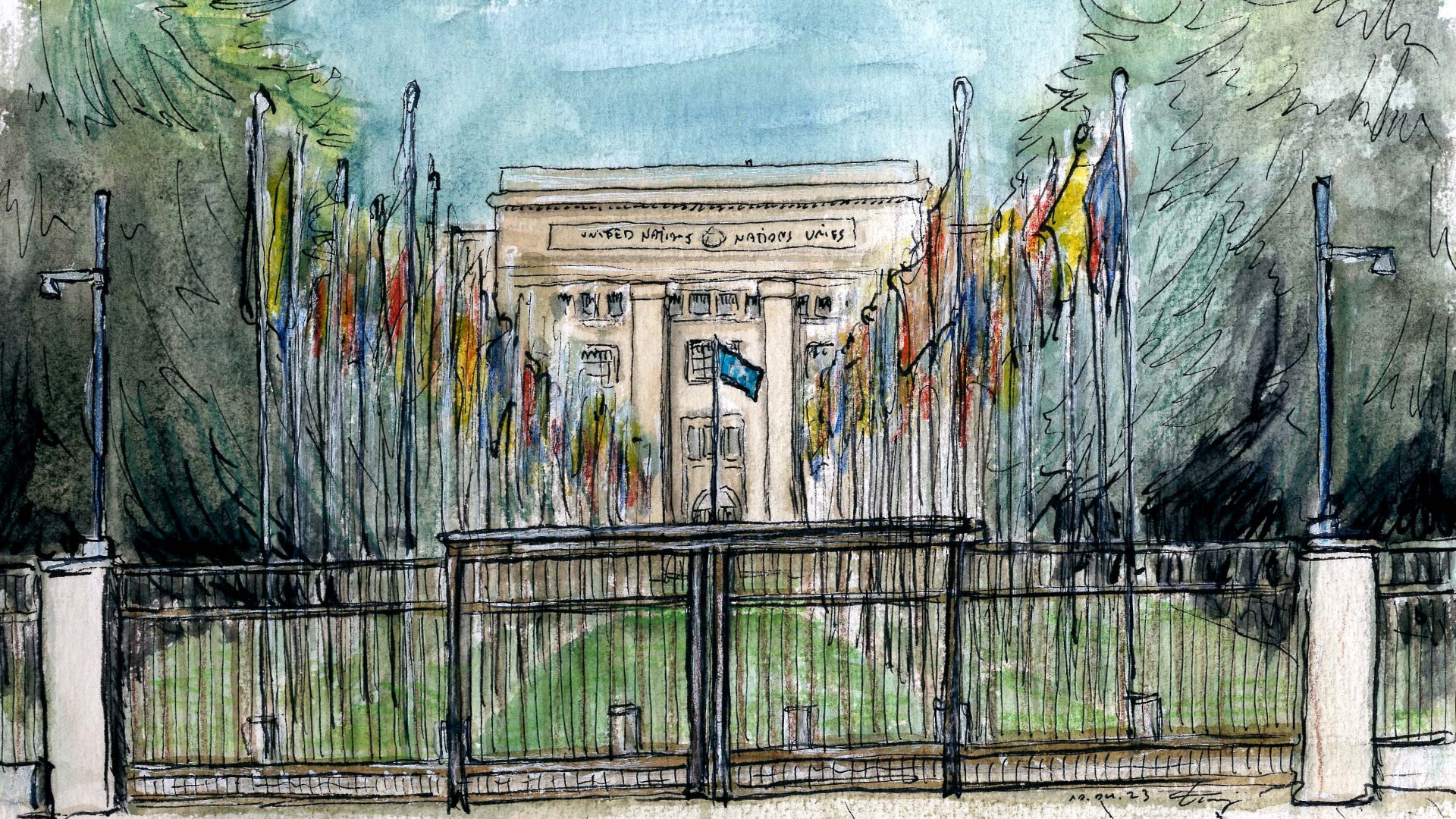On 28 and 29 September, at an Interactive Dialogue with the UN Assistant Secretary-General, States at the Human Rights Council discussed the Secretary-General’s report on reprisals against human rights defenders that had cooperated with United Nations bodies, which was published a week earlier.
Though the report mentions 40 countries that have carried out acts of reprisals, few States took the opportunity to hold the responsible governments to account by discussing specific individual cases.
Among them, Luxembourg, on behalf of the BENELUX States, publicly addressed the situations of the Bangladeshi organisation Odhikar and its members Adilur Rahman Khan and Nasiruddin Elan, the Belarussian NGO Viasna, and Félix Alejandro Maradiaga, Aníbal Toruño and Vilma Núñez de Escorcia of the Nicaraguan group Comisión Permanente de Derechos Humanos. They also raised the cases of Ibrahim Metwally Hegazy from Egypt and Abdulhadi Al-Khawaja from Bahrain.
Germany’s representative also raised the case of Viasna, as well as those of Chinese defenders Gui Minhai, Ilham Tohti, Li Qiaochu, Li Yuhan, Yu Wensheng and his wife Xu Yan, and of Egyptian activists Alaa Abd el-Fattah and Alaa El-Din El-Adly.
The United States cited the targeting of civil society organisations under Hong Kong’s sweeping ‘National Security Law’, as well as the harassment of the legal team defending the jailed pro-democracy media mogul Jimmy Lai.
Pakistan cited the cases of Kashmiri activists Khurram Parvez and Irfan Mehraj.
Liechtenstein and the Czech Republic also raised the case of Viasna before denouncing legislative measures to criminalise assistance to and cooperation with international bodies in Belarus and Russia. The Russian measures were also mentioned by the representative Lithuania, speaking on behalf of Poland and Ukraine.
The representative of Botswana called out acts of reprisals committed against official UN mandate holders, which are not included in the Secretary-General’s annual report.
Denmark cited the case of Abdulhadi Al-Khawaja detained in Bahrain.
The United Kingdom also cited the case of Sebastien Lai, the son of Jimmy Lai from Hong Kong as well as the cases of Anexa Alfred Cunningham from Nicaragua, the NGO Viasna and trade unionist Alexander Yaroshuk from Belarus and the lawyers Armel Niyongere, Lambert Nigarura, Dieudonné Bashirahishize and Vital Nshimirimana from Burundi.
Several of these statements included activists and organisations on behalf of whom ISHR has been actively campaigning, as well as other individuals and groups for whom we have campaigned in previous years.
ISHR has been advocating for five human rights defenders and groups of organisations targeted in relation to their engagement with UN bodies. Three of them were mentioned in the report: Kadar Abdi Ibrahim, a defender and activist from Djibouti, Vanessa Mendoza Cortés, an advocate for the access to safe and legal abortions in Andorra, and a series of of civil society organisations from Hong Kong that have been targeted by the territory’s sweeping ‘National Security Law’.
The latter is precisely the situation of Indigenous land rights activist Anexa Alfred Cunningham, a member of the Expert Mechanism on the Rights of Indigenous Peoples (EMRIP) that has been forced into exile by the government of Nicaragua. Her case was not included in the document.
Moreover, six States cited in the report are also running in the elections for the Human Rights Council, which will be decided by a vote at the UN General assembly on 10 October. They are France, Burundi, China, Cuba, Indonesia and Russia.
ISHR once again calls on States to put an end to reprisals against activists and organisations who exercise their right to cooperate with international bodies: without individual defenders and frontline organisations, UN human rights mechanisms in particular lose an irreplaceable source of accurate information. Fear of reprisals must not stop them from doing this vital work.




